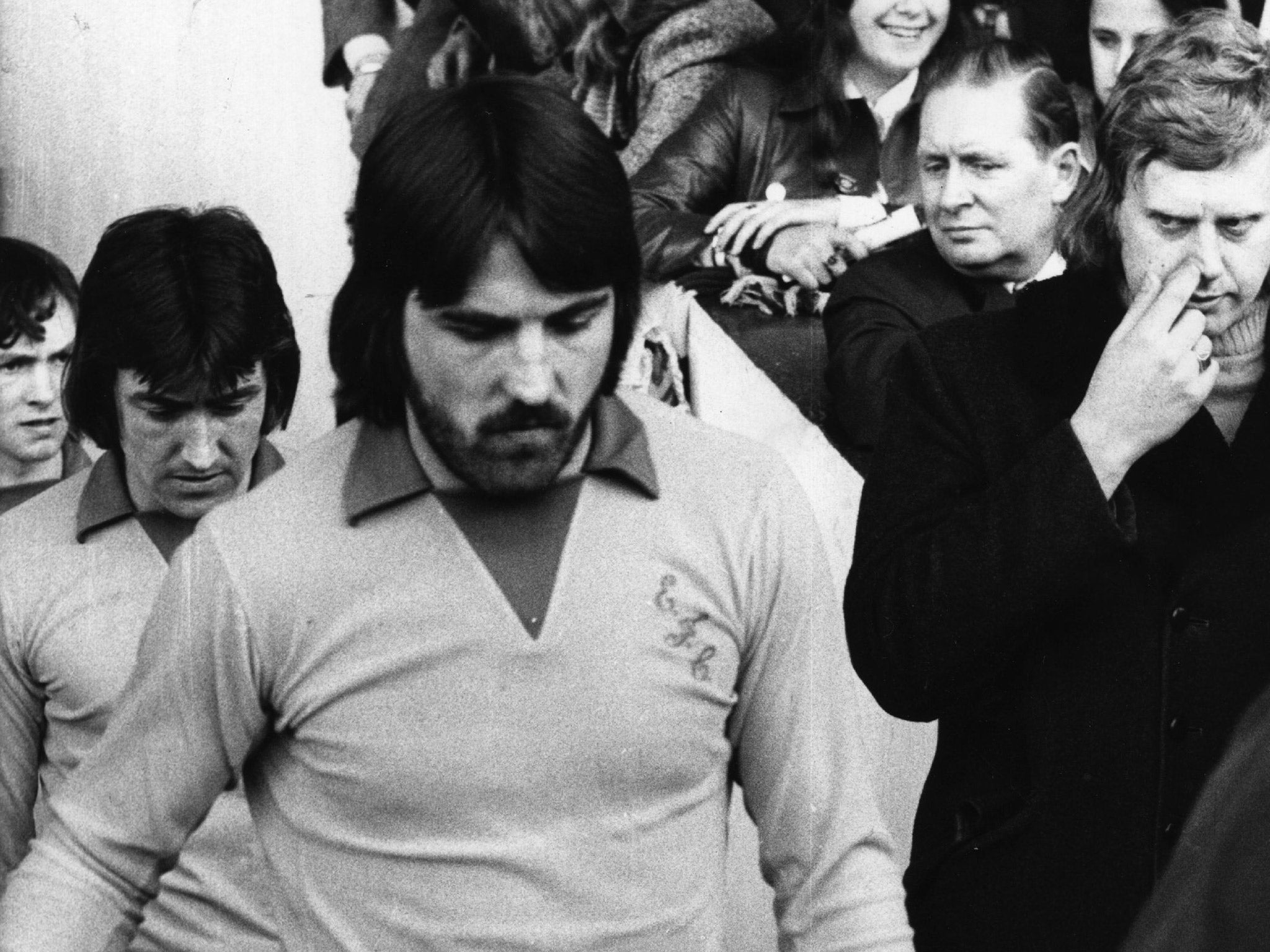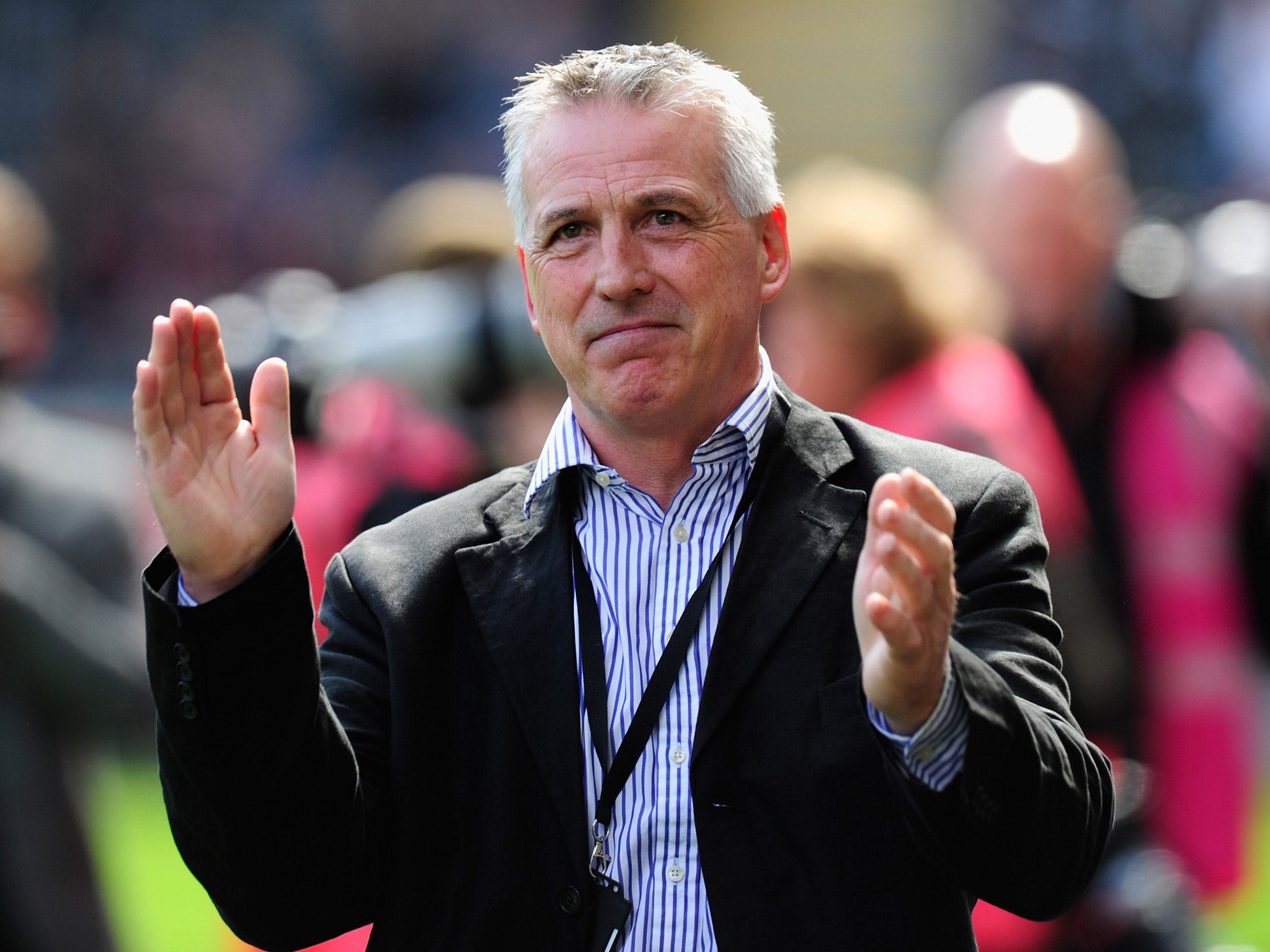Everton vs Liverpool: Bob Latchford's new book remembers Merseyside's monopoly on the English football
Ahead of Sunday’s derby, the legendary 1970s striker tells Ian Herbert about the days when Everton and Liverpool dominated the football landscape

Your support helps us to tell the story
From reproductive rights to climate change to Big Tech, The Independent is on the ground when the story is developing. Whether it's investigating the financials of Elon Musk's pro-Trump PAC or producing our latest documentary, 'The A Word', which shines a light on the American women fighting for reproductive rights, we know how important it is to parse out the facts from the messaging.
At such a critical moment in US history, we need reporters on the ground. Your donation allows us to keep sending journalists to speak to both sides of the story.
The Independent is trusted by Americans across the entire political spectrum. And unlike many other quality news outlets, we choose not to lock Americans out of our reporting and analysis with paywalls. We believe quality journalism should be available to everyone, paid for by those who can afford it.
Your support makes all the difference.There is a fine Bill Shankly story which reveals the forgotten significance of Bob Latchford, the striker Everton paid a British-record fee to bring to Goodison Park in February 1974 when that club were one of the biggest spenders in the game.
The Liverpool manager was so irked to have missed out on the forward from Birmingham City that he summoned the press for some “big news” on the same day of the signing in an attempt to steal Everton’s thunder. He concocted a line about how he would stay in the city until the day he died, and though his skills as one of the early masters of news management had some effect, he could not prevent Everton making a splash. Latchford says: “I later discovered that my brother Peter got a call at home from Shankly on the day I went up to [Everton], saying he wanted to talk. Peter wasn’t sure whether it was actually him.”
There was no mistaking the identity of Roger Hynd, though – the Birmingham centre-half and nephew of Shankly, sent around by Uncle Bill to knock on Latchford’s door in Birmingham with the same mission. “It was too late,” Latchford adds. “I’d made my decision.”
The extraordinary cross-city struggle for the player – who Birmingham traded for Howard Kendall, Archie Styles and £80,000 cash: total value £350,000 – is a reminder of how Liverpool and Everton then commanded a vast space on the football landscape. Sunday’s derby at Goodison is a pale imitation. Despite the side challenging for the title in 1978 and reaching an FA Cup semi-final and League Cup final, Latchford’s late 1970s era has somehow been categorised as a dark one for Everton – because the young First Division championship-winning team of 1970 did not fulfil its expectations and because Liverpool became so dominant.
But the Latchford deal was not the only demonstration of why Everton were known as the “Mersey Millionaires”, bankrolled by Littlewoods entrepreneur John Moores. The £300,000 shelled out for Martin Dobson from Burnley a few months after Latchford was a record cash outlay on a player. There was Dave Thomas – nicknamed “Tizer” by dint of the fact “he was so bubbly,” as Latchford remembers – Mike Pejic, George Wood and £300,000 Colin Todd. “It was ‘there go Everton, splashing out again,’” Latchford recalls.
His new autobiography, A Different Road, provides a tantalising sense of how Everton might just have become the force and the name in the world game that Liverpool proved to be, had they only managed to make their greater spending count on the pitch. While Shankly and Bob Paisley went for more cut-price signings, Everton, managed by the controlling Billy Bingham and then the more cerebral Gordon Lee always seemed to be one more big buy away from greatness. They had Britain’s first triple-decker stand, opened in 1971. Check out the YouTube footage of the 50,000 who crammed into Goodison to watch them in that period and you see the scale of it all.
Latchford slotted in effortlessly as the superstar player who, as all who have played alongside him will tell you, was blessed with kindness. The book tells the memorable story of how he won the £10,000 prize the Daily Express were offering for the first player to score 30 goals in the 1977-78 season and proceeded to give half to football charities, with all but £1,000 of the rest distributed among his team-mates. Latchford was then hit by a tax demand on his winnings, had to get his team-mates to testify he had given sums to them and ended up in a fight with the Inland Revenue which entailed him paying out more than he received.

He was the modern celebrity in other ways, opening a Bob Latchford Menswear boutique in Formby, where he settled with his family. Latchford sometimes worked behind the counter before deciding fashion was not quite his calling.
It is extraordinary that the city’s two clubs attracted the best players, despite its desperate post-industrial decline. “It was a city going through changes in an ugly way,” Latchford says. “You could sense the political unrest. You could see it in the dereliction. The people just coped and just got on.”
Fatefully, neither Liverpool nor Everton seized the commercial opportunities that came with their golden years and, to different degrees, both find themselves on the wrong side of a financial gulf today. “The game has moved on,” Latchford, 64, reflects. “Liverpool at least have some space to expand their stadium into. Our First Division finishes in that period seemed to represent failure at the time but what wouldn’t Everton give for them now?”
‘Bob Latchford – A Different Road’, published by De Coubertin Books £20
Join our commenting forum
Join thought-provoking conversations, follow other Independent readers and see their replies
Comments